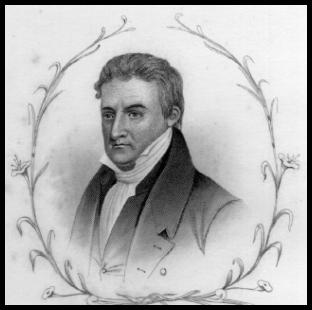
Presbyterianism is a Reformed (Calvinist) Protestant tradition named for its form of church government by representative assemblies of elders. Though there are other Reformed churches that are structurally similar, the word Presbyterian is applied to churches that trace their roots to the Church of Scotland or to English Dissenter groups that formed during the English Civil War.

The Presbyterian Church (USA), abbreviated PCUSA, is a mainline Protestant denomination in the United States. It is the largest Presbyterian denomination in the country, known for its liberal stance on doctrine and its ordaining of women and members of the LGBT community as elders and ministers. The Presbyterian Church (USA) was established with the 1983 merger of the Presbyterian Church in the United States, whose churches were located in the Southern and border states, with the United Presbyterian Church in the United States of America, whose congregations could be found in every state.

The Presbyterian Church in America (PCA) is the second-largest Presbyterian church body, behind the Presbyterian Church (USA), and the largest conservative Calvinist denomination in the United States. The PCA is Reformed in theology and presbyterian in government.

The Cumberland Presbyterian Church is a Presbyterian denomination spawned by the Second Great Awakening. In 2019, it had 65,087 members and 673 congregations, of which 51 were located outside of the United States. The word Cumberland comes from the Cumberland River valley where the church was founded.

The Presbyterian Church in the United States was a Protestant denomination in the Southern and border states of the United States that existed from 1861 to 1983. That year, it merged with the United Presbyterian Church in the United States of America (UPCUSA) to form the Presbyterian Church (USA).

The Presbyterian Church in Canada is a Presbyterian denomination, serving in Canada under this name since 1875. The United Church of Canada claimed the right to the name from 1925 to 1939. According to the Canada 2021 Census 301,400 Canadians identify themselves as Presbyterian, that is, 0.8 percent of the population.

The Presbyterian Church in the United States of America (PCUSA) was a Presbyterian denomination existing from 1789 to 1958. In that year, the PCUSA merged with the United Presbyterian Church of North America. The new church was named the United Presbyterian Church in the United States of America. It was a predecessor to the contemporary Presbyterian Church (USA).
The Upper Cumberland Presbyterian Church is a Christian denomination in the United States with fewer than 1,000 members among twelve congregations in Alabama and Tennessee.
The Springfield Presbytery was an independent presbytery that became one of the earliest expressions of the Stone-Campbell Movement. It was composed of Presbyterian ministers who withdrew from the jurisdiction of the Kentucky Synod of the Presbyterian Church in the United States of America on September 10, 1803. It dissolved itself on June 28, 1804, with the publication of a document titled the Last Will and Testament of The Springfield Presbytery, marking the birth of the Christian Church of the West.

Louisa Mariah Layman Woosley was the first woman ordained as a minister in any Presbyterian denomination. She was ordained by the Cumberland Presbyterian Church on November 5, 1889.

Finis Ewing was the primary founder of the Cumberland Presbyterian Denomination on February 4, 1810.
James Wade Knight was a Cumberland Presbyterian minister. He served as that denomination's first Director of Ministry and was the Executive of Kentucky Synod.
The Cumberland Presbyterian Church in America is a historically African-American denomination which developed from the Cumberland Presbyterian Church in 1874.
Cumberland College in Princeton, Kentucky, was founded in 1826 and operated until 1861. It was the first college affiliated with the Cumberland Presbyterian Church. In 1842, the Cumberland Presbyterian denomination withdrew its support from Cumberland College in favor of Cumberland University in Lebanon, Tennessee. In doing so, the denomination intended to simply relocate the school from Princeton to Lebanon, but Cumberland College remained open without denominational support until the Civil War.
The Cumberland Presbytery existed from 1802 to 1806 as a presbytery of the Presbyterian Church in the United States of America, a predecessor to the Presbyterian Church (U.S.A.). The presbytery was strongly influenced by the Second Great Awakening and has an important place within the history of the Cumberland Presbyterian Church.
Transylvania Presbytery is a member of the Presbyterian Church (U.S.A.), within the Synod of Living Waters. It oversees 67 churches (2022).

The Old School–New School controversy was a schism of the Presbyterian Church in the United States of America which took place in 1837 and lasted for over 20 years. The Old School, led by Charles Hodge of Princeton Theological Seminary, was more conservative theologically and did not support the revival movement. It called for traditional Calvinist orthodoxy as outlined in the Westminster standards.
Rev. James McGready (1763–1817) was a Presbyterian minister and a revivalist during the Second Great Awakening in the United States of America. He was one of the most important figures of the Second Great Awakening in the American frontier.

The Reformed Presbyterian Church of North America (RPCNA) is a Presbyterian church with congregations and missions throughout the United States, Japan, and Chile. Its beliefs—held in common with other members of the Reformed Presbyterian Global Alliance—place it in the conservative wing of the Reformed family of Protestant churches. Below the Bible—which is held as divinely inspired and without error—the church is committed to several "subordinate standards," together considered with its constitution: the Westminster Confession of Faith and Larger and Shorter Catechisms, along with its Testimony, Directory for Church Government, the Book of Discipline, and Directory for Worship.

Presbyterianism has had a presence in the United States since colonial times and has exerted an important influence over broader American religion and culture.